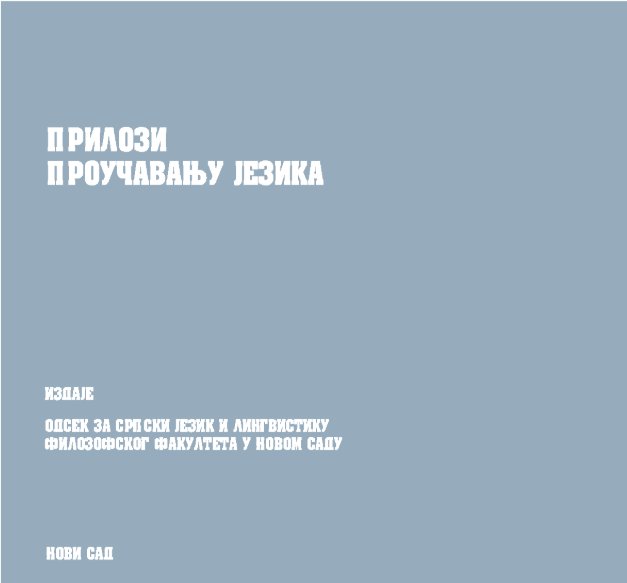Srpski i mađarski ekvivalenti engleskih pasivnih konstrukcija
Serbian and Hungarian equivalents of English passive structures
Author(s): Dušanka Zvekić Dušanović, Jelena RedliSubject(s): Language studies, Language and Literature Studies, Theoretical Linguistics, Syntax, Comparative Linguistics, Descriptive linguistics, Finno-Ugrian studies, South Slavic Languages, Philology, Translation Studies
Published by: Филозофски факултет, Универзитет у Новом Саду
Keywords: passive voice; translation equivalents; English; Serbian; Hungarian
Summary/Abstract: The aim of this paper has been to determine the translation equivalents of passive constructions on the material of three languages, English as a language of the original text, and Serbian and Hungarian as the languages of the translation. The novel “1984“ by George Orwell was chosen as the corpora because it abounds in passive clauses, which is related to the theme and the atmosphere of a totalitarian society in which the agent is often unknown or generalized. The results of the analysis show that the thematically conditioned use of passives in the original text is reflected in the languages of the translations, which is considered non-characteristic for them, with the frequency of passive constructions being somewhat more common in Serbian than in Hungarian. Due to the characteristics of the translation languages, the translators opted for different translation solutions, which is why in the Serbian language almost equally frequent are participle and reflexive passives, while Hungarian translation is dominated by clauses with an indefinite subject and a predicate in the 3rd person plural. Deviations from the form of the original text are most evident in the translation of long passives since active sentences are the most common in both languages.
Journal: Прилози проучавању језика
- Issue Year: 2019
- Issue No: 50
- Page Range: 121-147
- Page Count: 26
- Language: Serbian

